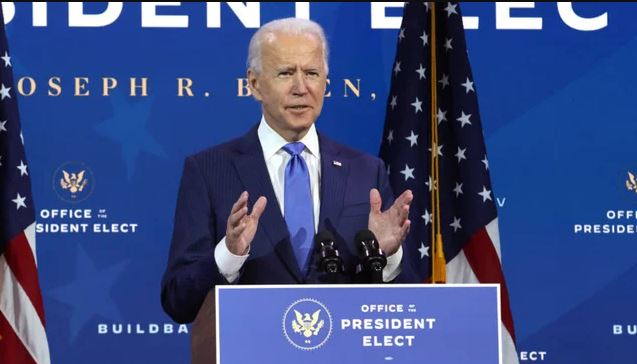LONDON: US President-elect Joe Biden said he is against Iran gaining a nuclear weapon, adding it is the “last thing” the Middle East region needs, in an interview with the New York Times on Wednesday.
Biden also said that his administration would seek to extend the duration of “restrictions on Iran’s production of fissile material that could be used to make a (nuclear) bomb” in any new negotiations on a nuclear deal.
Also Read: Guterres looks forward to working with Biden
He added that Tehran would have to agree to new demands if a return to a deal was possible and that it must address its “malign” regional activities through proxies in Lebanon, Iraq, Syria and Yemen.
Incumbent President Donald Trump unilaterally pulled out from the Joint Comprehensive Plan of Action (JCPOA) deal struck in 2018 and reimposed strong sanctions on Iran as part of a “maximum pressure” campaign against the Islamic republic.
Biden, who defeated Trump at the ballot box last month, said during campaigning that he did not support the lifting of sanctions but intended to offer Iran a “credible path back to diplomacy.”
However, in the NYT interview published on Wednesday, he admitted that getting Iran to agree to a modified deal would be “hard.”
“Look, there’s a lot of talk about precision missiles and all range of other things that are destabilizing the region,” Biden was quoted as saying.
“The best way to achieve getting some stability in the region” was to deal “with the nuclear program,” he added.
The president-elect warned that if Iran acquired a bomb, it would spark a nuclear arms race in the Middle East, and that “the last . . . thing we need in that part of the world is a buildup of nuclear capability,” he added.
“In consultation with our allies and partners, we’re going to engage in negotiations and follow-on agreements to tighten and lengthen Iran’s nuclear constraints, as well as address the missile program,” he told the Times.
Also Read: Pakistan rejects Saudi-UAE’s offer, imposes repeated pressure on Prince
Biden was cited as saying that the US always had the option to snap back sanctions if needed, and that Iran knew that.
The JCPOA had given Iran relief from sanctions in return for curbs on its nuclear program.




